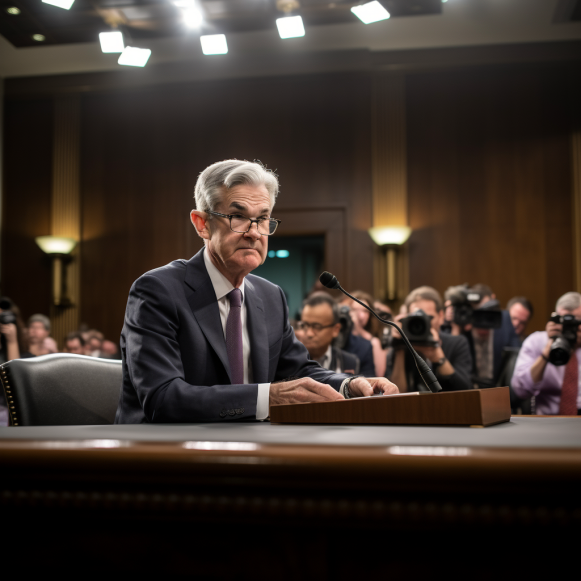Make these 6 moves now to capitalize on one of the best long-term investing outlooks in over a decade, according to JPMorgan’s $2.9 trillion asset management arm

- A diversified portfolio of stocks and bonds should climb 7% per year through the mid-2030s.
- JPMorgan Asset Management’s new report shows that growth will be steady but lower than in the 2010s.
- Here’s exactly how the firm recommends investing right now for strong long-term gains.
According to JPMorgan Asset Management (JPMAM), investors should not be concerned about slower economic growth caused by higher-for-longer interest rates and inflation.
Instead, money managers should expect solid returns across asset classes over the next decade, according to the firm’s top investing minds in their annual long-term capital market assumptions report.
According to the report, a traditional 60/40 stock-bond portfolio will generate an average annual return of 7% over the next 10 to 15 years.
While this is slightly lower than last year’s 7.2% estimate, it remains one of the most optimistic forecasts in a decade, according to strategists at the $2.9 trillion firm at a press conference about the report on Tuesday. For comparison, JPMAM forecasted 4.3% long-term returns in 2021.
Lower growth, higher rates will define the economy’s next decade
In terms of the economy, JPMAM forecasts long-term global GDP growth of 2.4% per year, which is slightly higher than the 2.3% estimate for 2022 but lower than the 3.1% median growth rate in the 2010s. The United States is expected to grow at a 1.8% annual rate, compared to 1.6% for other developed markets.
This more cautious growth forecast reflects structural changes in the global economy that occurred during the pandemic. According to JPMAM, inflation will settle at 2.9% in the mid- to late-2020s, which is much higher than the previous decade’s rate but in line with the historical average.
According to JPMAM strategists, high price growth means that the Federal Reserve and European Central Bank’s near-zero interest rate policy of the 2010s is over.
“These doves have changed their feathers,” said David Kelly, chief global market strategist at JPMAM, of the conference’s central bankers. “They’re hawks now.”
However, fiscal policy, as well as artificial intelligence, should help lift the global economy. According to JPMAM, the ongoing green energy transition in Europe and the United States, which is spending a trillion dollars on infrastructure, will boost growth. According to the firm, AI productivity gains will likely add a tenth of a percentage point to global growth over the next decade.
While JPMAM’s report focused on long-term outcomes rather than near-term risks, Kelly, in an interview with Insider last month, warned that a recession was possible. However, according to the strategy chief, a downturn would not be a repeat of the financial crisis.
“We may be on the verge of something,” Kelly said of the economy. “But we think we’re on the edge of a swamp — not the edge of a cliff.”
Kelly went on to say, “There’s nothing in the outlook we’re looking at right now that suggests that the US or the world economy is on the edge of a deep recession.”
According to JPMAM, many of the market’s top concerns, such as restrictive monetary policy and geopolitical turmoil, will persist for the next decade.
However, asset management strategists strongly advise staying invested, especially because the biggest risks, such as a pandemic, are always unpredictable.
Six of the best ways to invest right now
While a balanced portfolio should generate a 7% long-term return, JPMAM’s experts advised investors to aim even higher. The firm claims that by simply incorporating alternative investments, expected returns rise to 7.6% and can easily exceed that with successful active management.
According to JPMAM, diversification across asset classes and countries is critical for anyone with a long time horizon. Kelly and his colleagues, global multi-asset head Monica Issar and portfolio manager Grace Koo, are advising clients to diversify away from US stocks.
“Diversification is owning the stuff you hate,” he said. In addition, he stated that “cash is a trap — not a long-term investment.”
According to JPMAM, international equities, both in emerging markets and developed economies, appear to be more appealing than their US counterparts. The firm discovered that foreign stocks trade at a historic discount to the S&P 500 on a forward basis. According to the report, the valuation disparity was 30.5% as of September 30 — nearly double the typical markdown of 15.9%.
According to JPMAM strategists, the long-awaited reversal in international stocks will not occur overnight. The group is riskier than US companies, partly because of their exposure to geopolitical conflicts, and they also rely on the US dollar falling in value relative to other currencies. After years of missing growth forecasts, emerging markets in particular have fallen flat.
According to JPMAM, emerging-market equities and those traded in Europe, Australasia, and the Far East (EAFE) will rise 8.8% and 9.2% per year over the long term, respectively. This is significantly higher than the 7% expected gain for US large-cap stocks, which have dominated for over a decade.
JPMAM is bullish on fixed income, specifically long-term US Treasuries and US investment-grade bonds, in addition to stocks. Following a multi-year selloff, the firm is extremely bullish on the asset class, forecasting 4.6% and 5.1% long-term returns for those groups, respectively.
Bond yields are at their highest since before the financial crisis, but analysts widely expect prices to rise once the Fed stops raising interest rates. Bob Michele, the head of JPMAM’s global fixed income division, told Insider earlier this month that this is one of the best times in his 43-year career to buy bonds.
“As the recent inflation shock and spike in bond market volatility fade into the rearview mirror, we anticipate a welcome calming of the gyrations in the fixed income market,” the analysts at JPMAM said in their report.
While the tried-and-true 60-40 portfolio should perform well, JPMAM believes investors are passing up opportunities if they only focus on stocks and bonds. According to the firm’s strategists, “alternative assets are arguably the brightest spot in an attractive universe of returns this year.”
In JPMAM’s most recent projections, US real estate had the most impressive year-over-year increase in expected returns, rising from 5.7% to 7.5%. Global real estate investment trusts (REITs) are expected to grow at a rate of 7.9% per year, up from 6.4% in 2022.
Real estate is a proven inflation hedge that will shine if price growth continues as expected. Given the nationwide housing shortage and the prevalence of post-pandemic work-from-home policies, investors should prioritize residential properties over office buildings.
“A shortage of affordable housing means supply/demand metrics for apartments and single-family rentals remain favorable and should stay that way over our 10- to 15-year investment horizon,” the researchers wrote.
Finally, REITs in the United States and Europe are appealing because they are cash-flow producing machines with generally healthy balance sheets. JPMAM also advises against investing in office REITs.






